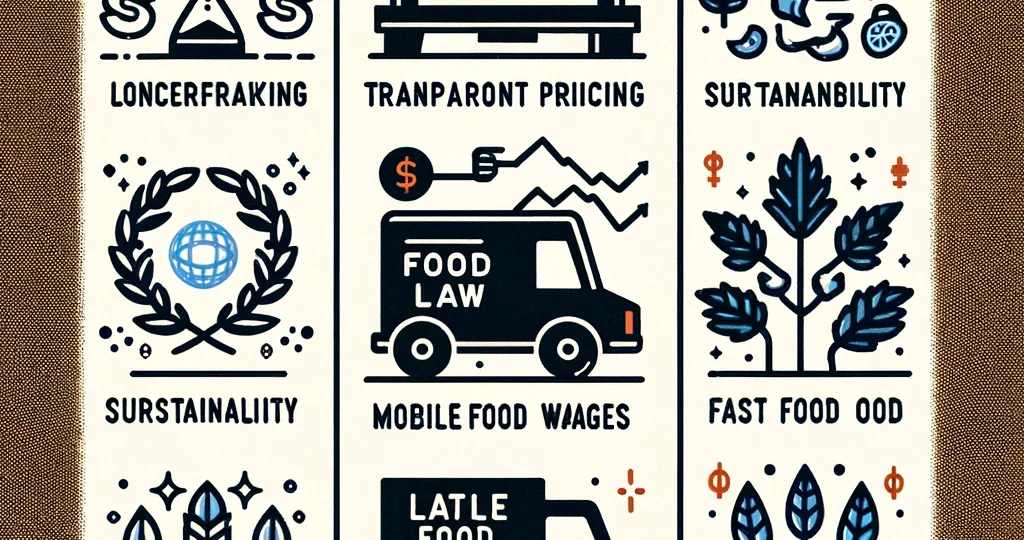
In today’s highly competitive food industry, companies face increasing scrutiny over the accuracy of their product labels. Consumer class actions related to misleading or inaccurate labeling claims, particularly those involving ‘all-natural,’ ‘organic,’ and ‘non-GMO’ assertions, have become a significant concern for food manufacturers and distributors. As a result, the role of food lawyers has evolved to include proactive strategies aimed at ensuring label compliance and defending against costly lawsuits.
The Rise in Labeling Litigation
The demand for natural, organic, and non-genetically modified (GMO) products has surged in recent years, driven by consumer preferences for healthier, more sustainable options. However, this trend has also led to an uptick in litigation targeting companies that make these claims on their product labels.
Consumers are increasingly vigilant about the accuracy of label statements, and class action lawyers are quick to capitalize on any perceived discrepancies. Common allegations in these lawsuits include:
- False or misleading ‘all-natural’ claims, particularly when products contain synthetic or artificial ingredients.
- Unsubstantiated ‘organic’ claims, where products fail to meet the strict standards set by the U.S. Department of Agriculture (USDA).
- Misleading ‘non-GMO’ claims, especially when products are found to contain genetically modified organisms.
These lawsuits can result in substantial financial losses, damage to brand reputation, and costly legal battles, making it essential for companies to have robust defense strategies in place.
The Role of Food Lawyers
Food lawyers play a crucial role in helping companies navigate the complex landscape of food labeling regulations and defend against consumer class actions. Their expertise extends across various areas, including:
- Regulatory Compliance: Food lawyers work closely with companies to ensure that their product labels comply with federal, state, and international regulations. This involves conducting thorough reviews of label claims, ingredients, and marketing materials to identify any potential risks of litigation.
- Risk Assessment: By conducting comprehensive risk assessments, food lawyers can proactively identify areas where label claims may be vulnerable to legal challenges. This allows companies to make informed decisions about label modifications or to implement additional substantiation for their claims.
- Litigation Defense: In the event of a class action lawsuit, food lawyers provide strong defense strategies, including representing companies in court, negotiating settlements, and challenging the validity of the claims. Their goal is to minimize financial impact and protect the brand’s reputation.
- Crisis Management: Food lawyers are equipped to handle crisis situations, such as product recalls or sudden regulatory changes that impact label compliance. They work swiftly to mitigate risks, communicate with regulatory agencies, and manage public relations to minimize the fallout.
- Advocacy and Lobbying: In some cases, food lawyers engage in advocacy efforts to influence regulatory policies and standards, particularly in areas where the law is ambiguous or subject to differing interpretations. This proactive approach can help companies avoid future legal pitfalls.
Proactive Labeling Strategies
Given the high stakes involved in labeling litigation, food lawyers work with companies to develop proactive strategies that minimize the risk of facing consumer class actions. These strategies may include:
- Label Audits: Regular audits of product labels and marketing claims to ensure they align with current regulations and industry standards. This ongoing review process helps companies identify and address potential compliance issues before they escalate into legal disputes.
- Third-Party Certification: Seeking third-party certifications, such as USDA Organic or Non-GMO Project Verified, can provide additional credibility to label claims. Food lawyers assist in navigating the certification process and ensuring that the company meets all requirements.
- Transparent Disclosures: Encouraging transparent disclosures of ingredients and sourcing practices, even for claims that are not legally required. This can help build consumer trust and provide a defense against allegations of misleading labeling.
- Rigorous Testing and Documentation: Companies are advised to conduct rigorous testing of their products to substantiate label claims. Food lawyers help ensure that the testing methods and results are well-documented, providing a strong defense in the event of a legal challenge.
- Employee Training: Training employees involved in label creation and marketing on the importance of accurate and compliant labeling. This helps prevent inadvertent errors that could lead to costly litigation.
As consumer demand for transparent, accurately labeled food products continues to grow, the risk of facing class action lawsuits over labeling claims remains a significant threat to food companies. By working closely with experienced food lawyers and implementing proactive strategies, companies can protect their brands, ensure compliance, and avoid the financial and reputational damage associated with litigation.
